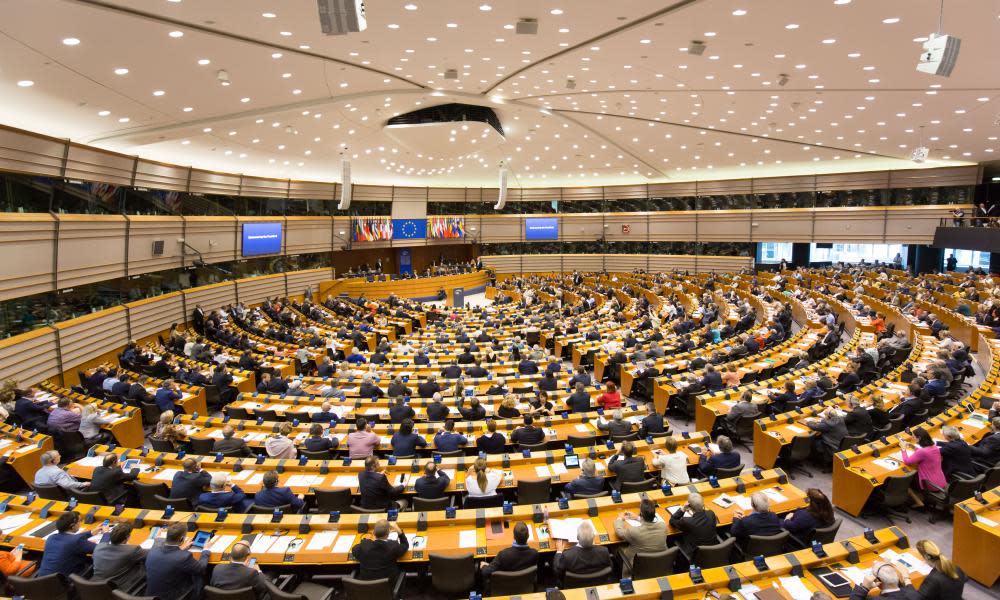MEPs call for power to tackle 'vexatious lawsuits' targeting journalists

A group of European MEPs is seeking to turn the tables on companies that they allege are targeting investigative reporters with “abusive” lawsuits and other legal threats as a way to silence critical journalism.
Under a new proposal put forward by six MEPs, who called for the creation of a new EU directive to tackle the problem, firms involved in so-called vexatious lawsuits could face financial fines if they pursue abusive behaviour towards journalists.
The MEPs are also proposing that the new EU directive would give investigative journalists and media groups the power to request that “vexatious lawsuits” be expediently dismissed, and would create a fund that would financially support media groups that resist lawsuits that are strictly designed to intimidate them.
“This practice is abusive, poses a threat to media freedom and has no place in the European Union,” the MEPs said in their letter to Frans Timmermans, the vice-president of the European commission. The letter was signed by six MEPs that represent major political groups in Brussels: David Casa of the EPP, Ana Gomes of S&D, Monica Macovei of ECR, Maite Pagazaurtundúa of ALDE, Stelios Kouloglou of GUE, and Benedek Jávor of the Greens.
Procedures against such lawsuits - known as SLAPP (Strategic Lawsuits Against Public Participation) - are common in a number of states in the US but are new to Europe. One challenge in drafting anti-SLAPP legislation is determining how to target abusive claims, without denying rights of those seeking legitimate claims.
The MEPs singled out a handful of legal claims that they suggested were illustrative of the SLAPP problem. One was the lawsuit against this publication, the Guardian, and the BBC by Appleby, the offshore company at the heart of the Paradise Papers investigation.
The Paradise Papers project - which also involved Pulitzer Prize-winning International Consortium of Investigative Journalists (ICIJ) - revealed new details of complex arrangements and offshore activities of some of the world’s richest people and companies.
Appleby has alleged that the documents at the heart of the stories were stolen in a cyber-hack and that there was no public interest in publishing them. The Guardian and the BBC are defending themselves against the claim.
Appleby said in a statement: “Appleby’s main objective of the legal application, and indeed the proceedings as a whole, is to understand which of our confidential and privileged documents were stolen by hackers so that we can for example respond meaningfully to clients and colleagues about what information, relating to them, has been taken. This is something that we have repeatedly requested over a period of months and has always been refused by BBC and Guardian journalists.”
It added: “This case is not about trying to identify journalistic sources or suppressing freedom of speech. Our claim is narrow in its main focus. It is for breach of confidentiality including most importantly in legally privileged documents.”
The MEPs expressed intense concern about the impact of a number of lawsuits, which they claim are SLAPP claims, in Malta, the small Mediterranean island state where investigative journalist Daphne Caruana Galizia was murdered in a car bomb last October. They point out that Caruana Galizia was being sued at the time of her murder by Pilatus Bank, a financial institution based in Malta that she frequently criticised. The lawsuit, which charged Caruana Galizia with defamation, was filed in the US and was dropped following her death. Three men have been arrested and charged with carrying out the killing.
“This is a perfect illustration of the abusive and contemptible nature of SLAPP practices,” the MEPs claimed.
According to the MEPs, Maltese media groups, faced with legal threats, have complied with Pilatus Bank’s requests, and have been deleting and amending articles in their online archives. The MEPs said these acts were “effectively concealing truth and re-writing history”.
The bank has denied any of its claims were abusive or intimidating. It said it was entitled to take legal steps when it has been defamed. It said the action against Caruana Galizia was the first time it had sued a journalist but it believed it was necessary in that case because of the “serious, false and defamatory” allegations made against it, which it said were based on dubious sources with no evidence.
Pilatus, which has strenuously denied any wrongdoing, is the subject of an initial enquiry by European banking authorities following a request by the European commission and European parliament that they examine the bank and the strength of independent financial oversight in Malta.
The MEPs letter is also calling for the creation of a new EU register that would “name and shame” firms that pursue abusive practices.

 Yahoo News
Yahoo News 
